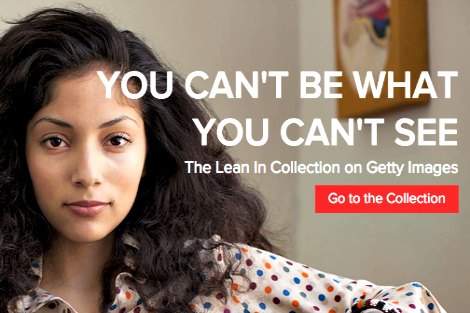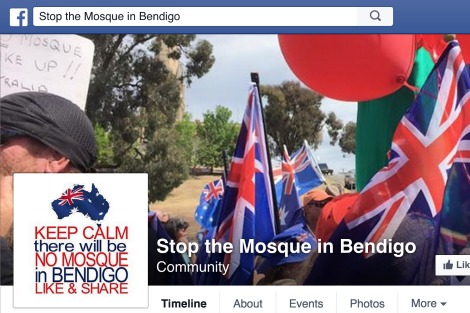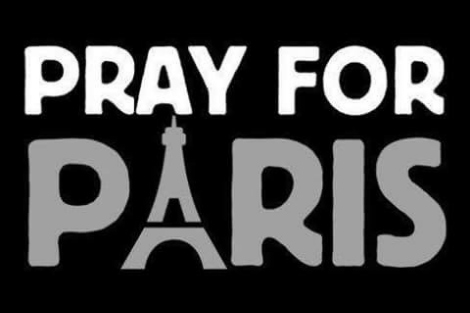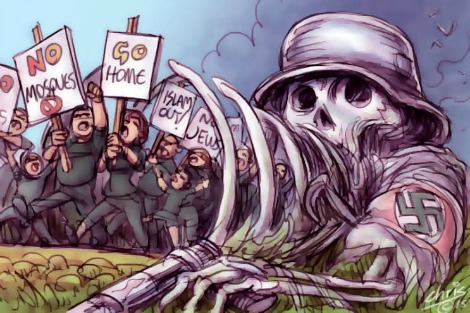Keywords: Facebook
There are more than 200 results, only the first 200 are displayed here.
-

AUSTRALIA
- Celeste Liddle
- 01 February 2016
27 Comments
On the day of the Invasion Day rally in Melbourne, I was abused for wearing a pro-Aboriginal rights t-shirt. I wasn't shocked. Indeed, I even expected it. It is not the first time I have been abused as an Indigenous activist on Australia Day. What did shock me were the media reports on the rally. When I read that the densely packed, energetic, noisy crowd consisted of only 150 people, I was surprised, to say the least. I and other seasoned protesters estimated the crowd at around 3-5000.
READ MORE 
-

MEDIA
- Kate Mani
- 27 January 2016
2 Comments
A few months ago, someone I know died. We had only met a couple of times, accepted each other's Facebook friend requests, and messaged each other on and off. But I grew to know him well. His face filled my Facebook newsfeed weekly. Now I see his family's farewells, and the preceding year of photos makes it even easier to picture their grief. Be it the loss of a friend or a city shattered by terror, the 21st century colossus that is social media has reinvented the wheel of commemoration.
READ MORE 
-

MEDIA
- Catherine Marshall
- 15 January 2016
1 Comment
Studies confirm that sexualised images of slim young women used in advertising and popular culture lead to body dissatisfaction, psychological impairment and eating disorders. A new initiative from the non-profit LeanIn.org is fighting this entrenched culture through a partnership with Getty Images. It has created a photo library depicting females in many sizes, cultures and styles of appearance, but all strong and determined and in-charge.
READ MORE 
-

INTERNATIONAL
- Bronwyn Lay
- 14 January 2016
3 Comments
As I marched for Remembrance Day in our small village in France, I wondered, 'How long will these villages keep these ceremonies? When will someone decide these wars are too long ago or too far away?' Two days later, Paris was attacked. The news came like war does: sudden and violent. Then came declarations of a state of emergency and the closing of borders. My eldest daughter was over the border in Switzerland without a passport. War starts in increments, in the small ordinary worries of families.
READ MORE 
-

AUSTRALIA
- Leanne O'Donnell
- 12 January 2016
Back in March Malcolm Turnbull told ABC radio: 'The only thing the data retention law is requiring is that types of metadata which are currently retained will be retained ... for at least two years.' In fact the laws, which come into effect next week, include an obligation on service providers to 'create' data that falls within the data set to be retained, if they don't already collect it. This isn't nitpicking. The more data that is created, the more the scheme will cost, and the greater the risk of privacy breach.
READ MORE 
-

AUSTRALIA
- Fatima Measham
- 12 January 2016
6 Comments
A series of protests against a mosque in Bendigo and the launch of an Islamophobic party in Perth may be cause for concern, but only if political leaders fail to invalidate fringe views. Under Tony Abbott, the conflation of Islam and extremism became mainstream. Corrections regarding racial vilification and incitement are most properly determined in the court, so it is not Muslims or lefties who are oppressing these views but the laws that operate in the secular democracy they purport to defend.
READ MORE 
-

INTERNATIONAL
- Fatima Measham
- 20 November 2015
12 Comments
It is tempting to view the aftermath of terrorist attacks such as those in Paris as a well-rehearsed script. There are condemnation of the killings, sympathy for the families of victims, resolve to seek and punish perpetrators, expressions of solidarity across nations. Also, assaults targeting Muslims on the street and in policy. This time a few things have gone off-script. 'Hugs and hashtags' won't stop ISIS, but there is strength in refusing to cede control over our language and behaviour to terrorists.
READ MORE 
-

MEDIA
- Catherine Marshall
- 20 November 2015
3 Comments
The best thing I ever did was give up reading the Mail Online. I'd log on at the end of a long day for a dose of what I thought was harmless, digestible fun. But it wasn't long before this mental junk food started to bloat my mind. When Jennifer Garner and Halle Berry appeared before a committee at Sacramento's state assembly to press for the introduction of laws aimed at protecting children from the paparazzi, I realised I was engaging in a despicable act: the consumption of other people's private stories.
READ MORE 
-

MEDIA
- Jeff Sparrow
- 17 November 2015
15 Comments
In journalism, 'he said, she said' often functions as an evasion. Reporters' loyalty should be to accuracy, which isn't about compromise between extremes. When denialists and climate scientists take diametrically opposed stances, the truth doesn't lie somewhere in the middle. Sometimes, one side's right and the other's just wrong. The same can be said of reporting about the rightwing United Patriots Front. While they deny being fascists, that's what they are, and that's what we should call them.
READ MORE 
-

INTERNATIONAL
- Chris Middleton
- 16 November 2015
14 Comments
In many of these conflicts religious difference constitutes an important element in the conflict. Some commentators point to religion as the cause of many of humankind's wars. In a sense they are correct, as they would be also if they ascribed war to humankind's quest for liberty, equality, justice, or even love. It is a paradox of the human condition that that which is noblest in the human often gives way to violence and intolerance. How are we supposed to react to such an attack?
READ MORE 
-

INTERNATIONAL
- Bronwyn Lay
- 16 November 2015
16 Comments
As I marched for Remembrance Day in our small village in France, I wondered, 'How long will these villages keep these ceremonies? When will someone decide these wars are too long ago or too far away?' Two days later, Paris was attacked. The news came like war does: sudden and violent. Then came declarations of a state of emergency and the closing of borders. My eldest daughter was over the border in Switzerland without a passport. War starts in increments, in the small ordinary worries of families.
READ MORE 
-

AUSTRALIA
- Fatima Measham
- 26 October 2015
22 Comments
A series of protests against a mosque in Bendigo and the launch of an Islamophobic party in Perth may be cause for concern, but only if political leaders fail to invalidate fringe views. Under Tony Abbott, the conflation of Islam and extremism became mainstream. Corrections regarding racial vilification and incitement are most properly determined in the court, so it is not Muslims or lefties who are oppressing these views but the laws that operate in the secular democracy they purport to defend.
READ MORE 